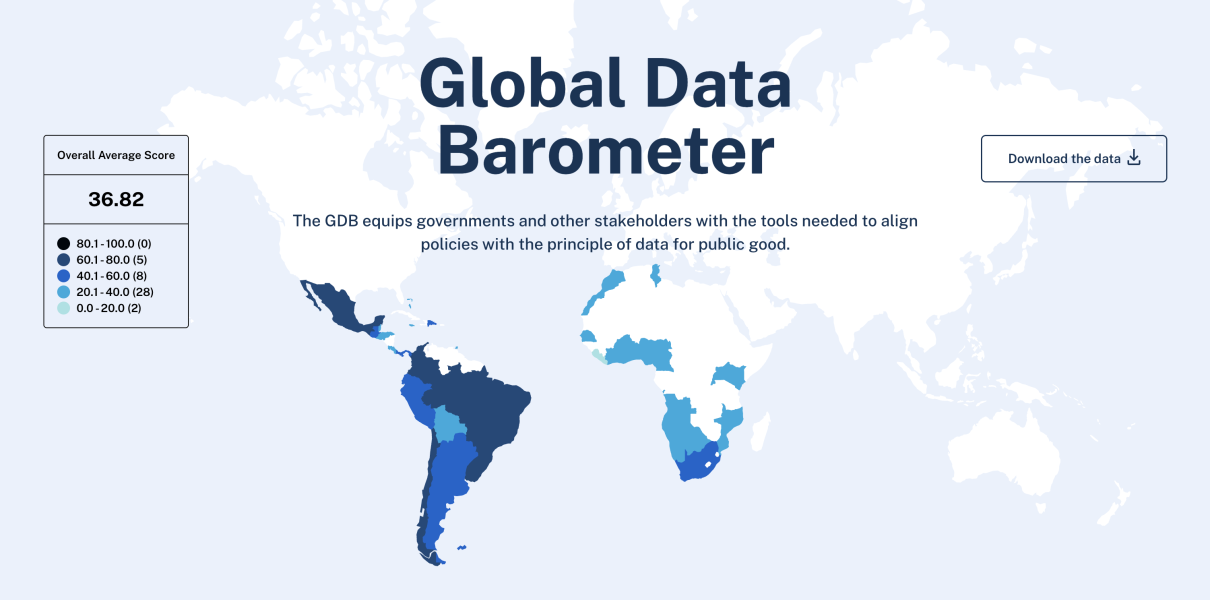
Tracking Progress Together: A Global Lens on Data for Sustainable Development
Read about the commitment “Committing to Collective Action: Measuring Progress for Sustainable Development” by the Global Data Barometer here.
As governments, civil society, and the private sector increasingly turn to data to drive progress on the Sustainable Development Goals, the Global Data Barometer (GDB) remains a vital tool for understanding how data is governed, used, and made available across the world. In late May 2025, the GDB team launched the second edition of their flagship report—an ambitious effort that spans 109 countries and offers fresh insights into global trends in data governance, availability, capability, and use.
Since launching their commitment to “Committing to Collective Action: Measuring Progress for Sustainable Development”, the GDB team has participated in a series of regional and global events to deepen dialogue, share findings, and engage stakeholders around the critical role of data in shaping more inclusive, accountable, and sustainable societies.

A Snapshot of Recent Activities
The months following the report’s release have been marked by high-impact engagements across continents:
- June 24: At a special event with the Organization of American States, the GDB team presented the report’s findings for Latin America and the Caribbean, exploring how data ecosystems in the region can be strengthened for public good.
- June 12: The Africa launch of the Global Data Barometer brought together regional experts to reflect on trends in data governance across the continent.
- June 10: At TICTeC, the team presented two sessions on defending democracy and using data for inclusion and sustainability.
- July 10: GDB hosted a webinar on "Mapping Asset and Interest Disclosure Across the World", showcasing how political finance transparency is evolving.
- Additional insights were shared during events at gLocal Evaluation Week and the Data for Development Festival earlier this year.
Beyond events, GDB has published a series of blog posts to unpack findings from the new report, including comparative analyses with the first edition and deep dives into themes like political finance transparency, data use across sectors, and regional perspectives. These resources help users interpret the data, apply it in their own work, and advocate for stronger data ecosystems globally.
With this second edition, GDB is not just tracking how data is used—it is demonstrating how collective action and cross-regional learning can strengthen data’s role in building a better world.
